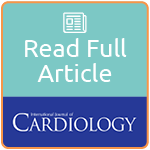
The data on the use and outcomes of VADs in children is limited, specifically for those with end-stage heart failure due to an acquired heart disease. Because of this, studies such as the following, are important in our work to improve outcomes for children on VADs. “Ventricular assist devices in paediatric cardiomyopathy and congenital heart disease: An analysis of the German National Register for Congenital Heart Defects” was published November, 2021, detailing the data and analysis of all children under 18 years of age with VAD support in the German National Register for Congenital Heart Defects. Of the 64 patients who received a VAD from 1999 to 2015, 25 had congenital heart disease and 39 had cardiomyopathy. Those children with cardiomyopathy were more likely to receive a cardiac transplantation (79.5% vs. 28.0%) compared to CHD patients. The analysis also found that VAD implantation increased from 13 (2000-2004) to 27 (2010-2014). Overall, survival of cardiomyopathy patients was significantly better compared to the CHD cohort (p < 0.0001). Multivariate analysis revealed a diagnosis of CHD (hazard ratio [HR] 4.04, p = 0.001), age at VAD implantation (HR 1.09/year, p = 0.04) and the need for pre-VAD extracorporeal membrane oxygenation (ECMO) support (HR 3.23, p = 0.03) as independent predictors of mortality. The data analysis showed that the uptake of VAD therapy in children is increasing, and morbidity and mortality remain high, especially in patients with congenital heart disease and those requiring ECMO before VAD implantation.
This study was published November 15, 2021 in International Journal of Cardiology.
CITATION
Lammers AE, Sprenger KS, Diller GP, Miera O, Lebherz C, Helm PC, Abdul-Khaliq H, Asfour B, Ewert P, Bauer UMM, Kehl HG, Humpl T, Warnecke G, Baumgartner H, Berger F, Tutarel O; German Competence Network for Congenital Heart Defects Investigators. Ventricular assist devices in paediatric cardiomyopathy and congenital heart disease: An analysis of the German National Register for Congenital Heart Defects. Int J Cardiol. 2021 Nov 15;343:37-44. doi: 10.1016/j.ijcard.2021.08.047. Epub 2021 Sep 3. PMID: 34487787.
